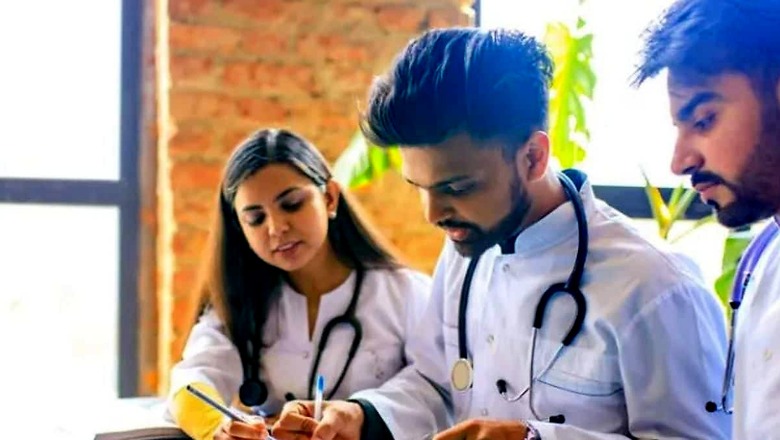
views
Prime Minister Narendra Modi’s emphasis on building an education system that makes students stay in India instead of going abroad is a welcome step but comes with huge challenges, including a limited timeframe, experts told News18.
The prime minister, while addressing the nation from the ramparts of the Red Fort on the 78th Independence Day, also announced that the government will add 75,000 medical seats over the next five years.
Study abroad consultants whom News18 spoke to said for a majority of students, going abroad to pursue higher studies is the second option as they have to take an education loan and then repay it by working while they are studying. If given an opportunity of studying back home, they would certainly grab it.
According to Pratibha Jain of Eduaboard Consulting, 50-60 per cent of all those going abroad to study are those who have taken education loans to pursue a course in a foreign university, be it at the undergraduate (UG) level or postgraduate (PG) level. Given that this is a significant number, there have to be as many affordable institutions to help them stay back in India to study.
“If these students get a seat in a government college, they will not be forced to take a loan to go out to study. For instance, countries in Eastern Europe, including Russia, Ukraine, Poland, Georgia and Romania, among others are popular for affordable higher education. It is not because these countries are better off in educational quality or facilities, it is just because of the cost since private colleges in India are too expensive for the middle class to afford. If students get to study in India at a similar cost, they would not want to go abroad. But the government will have to create that environment, those many quality institutions and as many seats, which will take a significant amount of time, sustained growth, commitment and investment,” said Jain.
When it comes to postgraduate studies, said Jain, India is catering to only 25 per cent aspirants, be it in management, finance or medical education.
“There are no courses such as Masters in Finance being offered by many institutions. We only have MBA here at the IIMs or other such institutes and the entrance exam is too tough. Reservations in seats is also high so a large number of those qualifying the exam are not able to get through and have to instead look at options for studying abroad,” she said.
The PM, in his address on Thursday, said even today, children, mostly belonging to the middle class, are going abroad for medical education, spending lakhs and crores. “Around 25,000 youths every year go abroad for medical education and they go to such countries, I get surprised when I hear about them,” said PM Modi, adding that the government wants more foreign students to come to India and study.
As per the National Medical Council (NMC) data, there are a total of 1,09,048 MBBS seats in India across government and private colleges. Of these, around 56,000 seats are available in 386 government medical colleges.
Dhananjay Shah, a Mumbai-based overseas education consultant, explaining the numbers and the gap to be filled said that in 2024, of the 23 lakh students who wrote the medical entrance exam for UG level, 56 per cent qualified, which means around 12-13 lakh students qualified while the total number of seats available is only a little over a lakh.
So, those who cannot afford private medical colleges, have to look for affordable options abroad. In India, the average course fee at a private medical college is around Rs 90 lakh. The most opted for countries for medical education include Russia, Georgia and Kazakhstan where the fee is much lower.
“Currently, India produces around 1 lakh doctors every year. It needs a million more doctors to be at the doctor to population ratio of 1:1000, which is in developed countries. So, adding more seats in government colleges is the right step. We are moving in the right direction with number of seats going up and the number of aspirants going up. In 2014, there were only 54,000 medical seats, which has risen to over a lakh in 2024, which is commendable. But, there needs to be far bigger spread of government medical colleges to make those remaining lakhs of students stay back in India, who are forced to go abroad for lack of a seat even though they have the merit,” said Shah.














Comments
0 comment